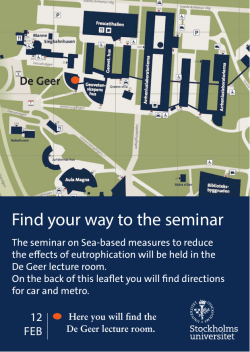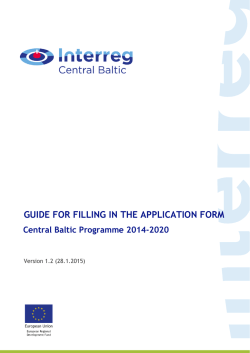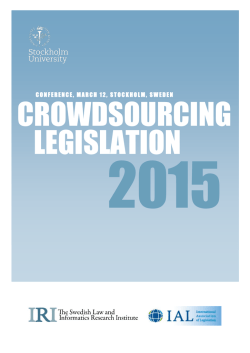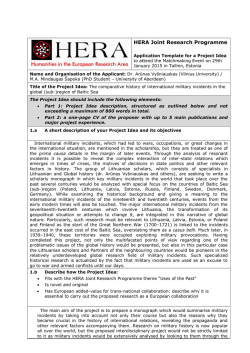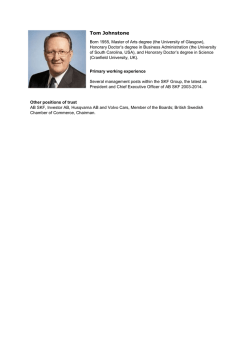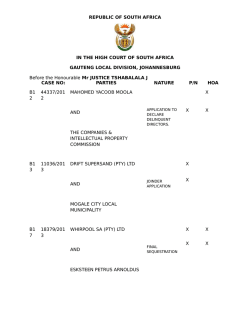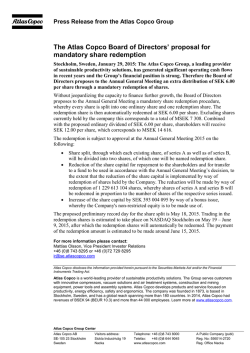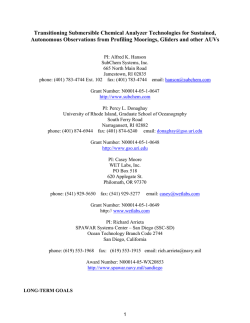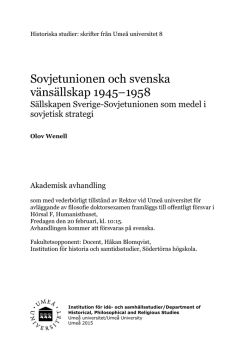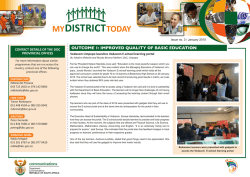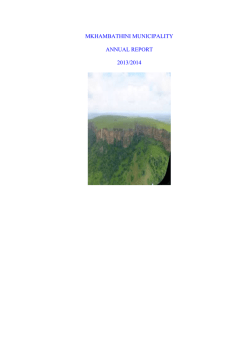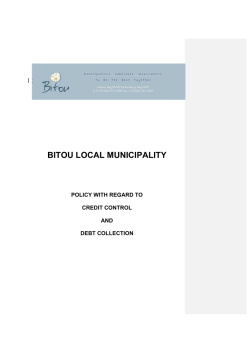
Program Sea-based Measures (pdf)
Sea-based Measures - to reduce consequences of Eutrophication 12 February 2015, Stockholm University Foto: Azote Seminar Program The seminar aims to give a scientific background to the influence of eutrophication on nutrient cycling and present pilot projects to discuss the potential of these as complementary solutions for combating eutrophication in the Baltic Sea. 9.00 – 09.30 09.30 – 09.40 09.40 – 10.20 Coffee and sandwich Welcome address, Stefan Berggren Swedish Ministry of the Environment and Tina Elfwing Stockholm University Baltic Sea Centre Scientific background to Baltic Sea Eutrophication, Bo Gustafsson Baltic Nest Institute 10.40 – 12.00 Presentations of projects Emil Rydin and Linda Kumblad Baltic Sea 2020 »Anoxic sediments bind phosphorous after Al-treatment.« Anders Stigebrandt Gothenburg University »Oxygenation of anoxic bottoms as a method to decrease the internal P-load and the eutrophication of the Baltic Proper« Bengt Simonsson, Teknikmarknad »Removing eutrophication-causing sediment top layer from seabed, converting it to valuable raw materials” Sven Blomqvist, Stockholm University »Enhanced inactivation of P in Baltic sediments by addition of marl” 12.00-12:45 Lunchbreak 12:45-13.45 Short parallel presentations A. Dennis Wiström, Västervik Municipality »Eutrophication as a resource - Restoration of a eutrophicated fjord through irrigation of crops with nutrient rich water« B. Matilda Gradin, Trelleborg Municipality »Nutrient recycling in agricultural landscapes via production wetlands, algae and biogas« C. Susanna Minnhagen, Kalmar Municipality »Large-scale feed-mussel farms to harvest nutrients from the sea” D. Jouni Lehtoranta and Heikki Pitkänen, SYKE Finnish Environment Institute “Benefits and disadvantages of artificial oxygenation under coastal marine conditions in the Baltic Sea” E. Sif Johansson, EviEM The Mistra Council for Evidence-Based Environmental Management »Can a reduction of zooplankton feeding fish improve water quality?« 13.50-14.10 Sea based methods in perspective, Lena Viktorsson Baltic Eye 14.30 -15.30 Panel discussion on potential, risks and the way forward Maria Laamanen Finnish Ministry of the Environment, Mikhail Durkin Eco Balt, Sif Johansson, Enviem, Pauli Merriman, WWF and Karl-Johan Lehtinen NEFCO Moderated by Susanna Baltscheffsky, Editor in Chief, Ny Teknik 15.30-15.45 Closing remarks and wrap up by Thomas Johansson Swedish Agency for Marine and Water Management The seminar will be lead by Christoph Humborg from the Stockholm University Baltic Sea Centre. In collaboration between the Agency for Marine and Water Management; Stockholm Univesrsity Baltic Sea Centre and the Swedish Ministry of the Environment
© Copyright 2026
